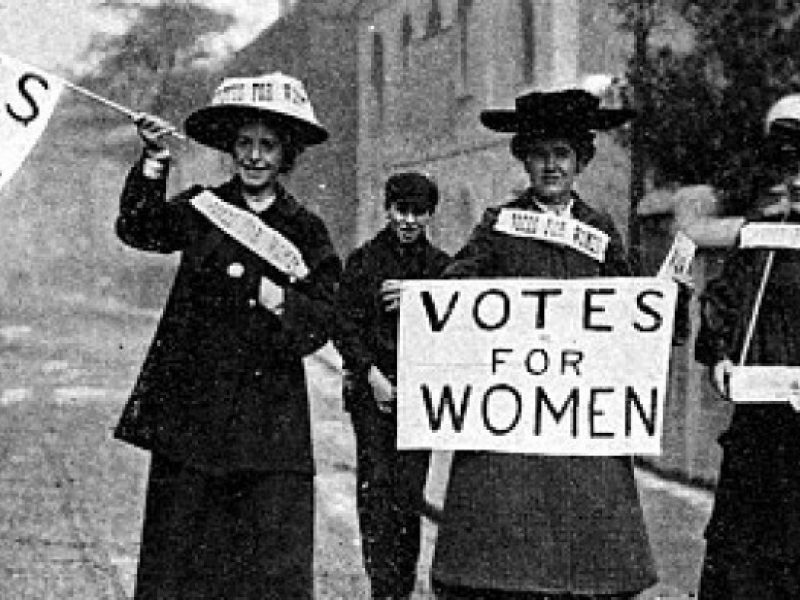"Women are one of the causes for the increase in the unemployment rate"
 Women fighting for their rights
Women fighting for their rights For women today I thought about commenting on an article I read recently. I read a lot for work and out of curiosity: books – of all types – but also newsletters.
In a newsletter by ESTE (ESTE-Parole di Management-3) I found an article with the title: “Globalisation, robots and women: why unemployment is rising” by Nicola Costantino which I read quickly. I am a woman and my job involves the labour market. I couldn’t quite believe what I was reading, but I put the article aside with the aim of reading it again properly a few days later.
Amongst the causes of this phenomenon (in structural and economic terms), a significant importance appears to be played by increasing automation of production processes, globalisation of markets and the entry of women (“The other half of the sky” by Mao Tse-tung) in the labour market.
– Nicola Costantino, Politecnico di Bari
In Italy female participation in the workforce in the 15-64 age bracket, which was traditionally very limited, (finally) climbed from 28% in 1973 to about 53% in 2012, with a further growth trend driven by an increase in professionalism and major cultural evolutions. This is an extremely positive result, but it has produced a further increase in the supply of labour, against a backdrop of stagnating demand. Globalisation and female participation both developed starting from the 70s, adding to processes of technological unemployment that were already underway. The result has been a reduction in the bargaining power of workers and there has been an interruption in the progressive lowering of working hours and a reduction in the share of income available to workers in favour of a higher remuneration of capital: in Italy the share of GDP going to workers went from 74% in 1980 to 64% in 2010 and the situation in other industrialised countries is very similar.
– Nicola Costantino, Politecnico di Bari
We are faced with a period of major changes that need not necessarily be negative. We have the technological capabilities to achieve a prediction made by Keynes – ensuring a suitable quality of life to all with only a few hours of work everyday – but we literally need to invent new ways of interpreting economic phenomena and governing a system that is increasingly globalised and interconnected: this challenge is far from easy but we must face it if we are to avoid the global economic system experiencing a crisis not because of scarcity, but because of an overabundance of production capacity.
– Nicola Costantino, Politecnico di Bari
I really don’t agree with these statements. I understand the need to look for the causes for a lack of jobs and the importance of offering new and fresh perspectives on the matter - even ones that are provocative - but you cannot blame women!!!
The category of workers includes men and women, period.
To say that women satisfy the same type of labour demand as men is tantamount to saying that work is a man’s world and women are intruders.
It’s like saying that in the US the cost of workers increased after slavery was banned.
In 2017, 100 years after the tragic event that we commemorate on 8 March, we still have to speak up and say that women are human beings with the same rights and duties as other human beings, i.e. men:
- Women have the same rights and duties a men.
- Women can do all the jobs that men can do.
- Women can make independent choices in their lives without having to ask permission from a man (be it their father or husband).
- Women have souls.
- Women have the right to vote.
- Women must be paid for their jobs and cannot earn less because of their gender.
- Women have to have the right to work even in times of crisis and must not be the first to be forced out of the labour market.
Do we really have to repeat these statements in 2017? Unfortunately we do given that some have yet to come true and others are being thrown into doubt by an Italian State professor!
Minister Valeria Fedeli - as a woman – do you think this is acceptable? Words have an importance and an impact – how can we educate young people with “professors” like these?
